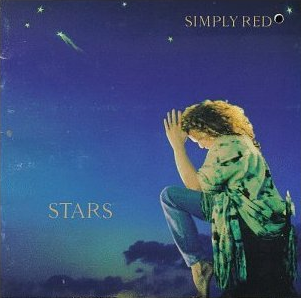By the early 1990s, Simply Red had firmly established themselves as one of Britain’s most successful Soul-Pop exports. Their fourth studio album, “Stars” (1991), not only consolidated this reputation but propelled them to unprecedented commercial heights. The record became the best-selling album in the United Kingdom for two consecutive years (1991 and 1992), eventually earning multi-platinum certification across Europe. While Mick Hucknall’s voice was again the focal point, the artistry of Fritz McIntyre as keyboardist, vocalist, and arranger was crucial in sustaining the band’s success during this period of peak visibility.

McIntyre’s role as a songwriter extended into “Stars”, although the bulk of the album was composed by Hucknall. His most distinctive moment, however, came not through writing but through performance: he delivered lead vocals on the track “Wonderland”. This rare spotlight highlighted the breadth of his talent and demonstrated that Simply Red was not solely a vehicle for Hucknall’s voice. McIntyre’s smooth, soulful delivery provided contrast to the familiar tone of the band’s frontman, reinforcing the sense of collective identity within the group.
As a performer, McIntyre’s keyboards shaped much of the album’s atmosphere. His use of synthesisers and digital piano reflected early-1990s production values, while maintaining the soulful warmth that had always characterised his playing. On “Something Got Me Started”, his rhythmic keyboard stabs helped drive one of the band’s most enduring singles, while his chordal layers on “Your Mirror” and “Thrill Me” provided emotional depth. His ability to blend contemporary textures with Gospel and Jazz influences gave the album both its modern sheen and its timeless soulfulness.
McIntyre’s hallmark was his restraint: he understood when to step forward and when to provide understated support. On the title track, “Stars”, his keyboard playing is delicate yet essential, creating a shimmering bed of sound that complements Hucknall’s romantic vocal. On ballads such as “For Your Babies”, his gentle accompaniment enhances the song’s intimacy without distracting from its lyrical sentiment. This capacity to shape mood through minimalism was one of McIntyre’s defining artistic traits, ensuring that his presence was felt even when it was not overtly foregrounded.As on earlier albums, McIntyre’s vocal harmonies were integral to the record’s texture. His Gospel-inflected backing vocals added warmth and richness to choruses, reinforcing the band’s collective sound. The combination of Hucknall’s emotive lead and McIntyre’s layered support epitomised the fusion of individual star power and ensemble artistry that defined Simply Red at their peak.
The album was again produced by Stewart Levine, whose polished approach aimed squarely at international audiences. Within this framework, McIntyre’s playing was consistently highlighted: the mix ensured his keyboards retained clarity and presence even amid lush arrangements. Levine’s production aesthetic allowed McIntyre’s subtle nuances to be heard by millions, transforming understated performances into central elements of the band’s commercial sound. “Stars” represented the zenith of Simply Red’s global popularity, but its polish and accessibility did not come at the expense of musical depth. Fritz McIntyre’s artistry was central to this achievement. As a keyboardist, he balanced modern technology with soulful authenticity; as a vocalist, he demonstrated versatility with his lead performance on “Wonderland”; and as an ensemble player, he ensured Simply Red’s sound remained warm, cohesive, and distinct. His contributions helped the band achieve a rare synthesis: commercial dominance paired with artistic credibility. At their peak, Simply Red were not just Mick Hucknall and his voice — they were also the soundscape created by Fritz McIntyre’s understated mastery.

















